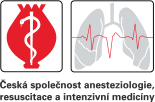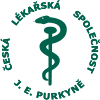Anest. intenziv. Med. 2006;17(5):261-265
Limitation of therapy in patients on ICU - a one-day national studyIntensive Care Medicine - Original Paper
- 1 Klinika anesteziologie, resuscitace a intenzivní medicíny UK v Praze, LF v Hradci Králové a Fakultní nemocnice Hradec Králové
- 2 Anesteziologicko-resuscitační klinika 2. LF UK a Fakultní nemocnice v Motole, Praha
- 3 I. interní klinika UK v Praze, LF a Fakultní nemocnice, Plzeň
- 4 Anesteziologicko-resuscitační klinika LF Masarykovy univerzity a Fakultní nemocnice u sv. Anny v Brně
- 5 Anesteziologicko-resuscitační oddělení, Masarykova nemocnice, Ústí nad Labem
Objective:
The purpose of the study was to obtain information about patients experiencing any form of limitation of therapy (withdrawal - WD, or withholding - WH of therapy) and the way it is performed on the ICU.
Design:
Prospective, multi-centre, one-day prevalence study.
Setting:
Intensive Care units.
Materials and Methods:
An analysis of the posted questionnaires regarding ICU patients with limitations of therapy on the day of the study (16/3/2005) was performed. Information about the type of ICU, the patients with limitation of therapy and its form was obtained. Attention was paid to the documentation of EOLD in patient charts, informing the family and the maintained therapy.
Results:
78 ICUs in the Czech Republic took part in the survey. 32 (41%) of them were university-based, 39 (44%) were based in regional hospitals. 56 of the ICUs were run by anaesthesiologists and 22 by other specialties. On the day of the study there were 574 patients hospitalized on ICUs. In 48 (8.36%) of them withholding or withdrawal of therapy had been initiated. Limitation of therapy was documented in the patient charts in 79% of the cases, the family was informed in 64%. WH was employed in 31 (64.6%) patients,WD in 15 (31.2%) and terminal weaning in 1 patient (2%). WD was more frequent in university-based ICUs,WH in regional hospitals. The most commonly maintained supportive measures during EOLD included parenteral infusions, nutrition, analgesia with sedation and ventilatory support.
Conclusion:
The study documented the current techniques used in EOLD on ICUs in the Czech Republic. Withholding of therapy is generally preferred to withdrawal. The most frequently withdrawn therapeutic measures are haemodialysis and administration of catecholamines. Analgesia and sedation, nutrition, antibiotics and ventilatory support are usually maintained. Termination of ventilatory support is rarely used.
Keywords: limitation of therapy; intensive care
Published: October 1, 2006 Show citation
References
- Wenger, N. S., Carmel, S. Physicians' religiosity and end-of-life care attitudes and behaviors. Mt. Sinai J. Med., 2004, 71, 5, p. 335-343.
- Pařízková, R., Černý, V., Cvachovec, K., Novák, I., ©rámek, V., Nalos, D. Postoj lékařů ARO/JIP k otázkám omezení rozsahu poskytované léčby u nemocných v intenzivní péči. Anest. intenziv. Med., 2006, 17, č. 5, s. 251-260.
- Pařízková, R., Černý, V., Dostál, P. Zkuąenosti s kategorizací nemocných v resuscitační péči. Anest. neodklad. Péče, 2000, 11, 3, s. 176-180.
- Wunsch, H., Harrison, D. A., Harvey, S., Rowan, K. End-of-life decisions: a cohort study of the withdrawal of active treatment in intensive care units in the United Kingdom. Intensive Care Med., 2005, 31, p. 823-831.
 Go to original source...
Go to original source...  Go to PubMed...
Go to PubMed... - Esteban, A., Gordo, F. et al. Withdrawing and withholding life support in the intensive care unit: a Spanish prospective multi-centre observational study. Intensive Care Med., 2001, 27, p. 1744-1749.
 Go to original source...
Go to original source...  Go to PubMed...
Go to PubMed... - Prendergast, T. J., Luce, J. M. Increasing incidence of withholding and withdrawal of life support from critically ill. AJRCCM, 1997, 155, p. 15-20.
 Go to original source...
Go to original source...  Go to PubMed...
Go to PubMed... - McLean, R. F., Tarshis, J., Mazer, C. D., Szalai, J. P. Death in two Canadian intensive care units: institutional difference and changes over time. Crit. Care Med., 2000, 28, p. 100-103.
 Go to original source...
Go to original source...  Go to PubMed...
Go to PubMed... - Wood, G. G., Martin, E. Withholding and withdrawing life sustaining therapy in a Canadian intensive care unit. Can. J. Anaesth., 1995, 42, p. 186-191.
 Go to original source...
Go to original source...  Go to PubMed...
Go to PubMed... - Sprung, C. L., Cohen, S. L. et al End-of-life practices in European intensive care units: the Ethicus Study. JAMA, 2003, 13, 290, 6, p. 790-797.
 Go to original source...
Go to original source...  Go to PubMed...
Go to PubMed... - Hall, R. I., Rocker, G. M. End-of-life care in the ICU. Treatments provided when life support was or was not withdrawn. Chest, 2000, 118, p. 1424-1430.
 Go to original source...
Go to original source...  Go to PubMed...
Go to PubMed... - Yazigi, A., Riachi, M., Dabbar, G. Withholding and withdrawal of life-sustaining treatment in a Lebanese intensive care unit: a prospective observational study. Intensive Care Med., 2005, 31, 4, p. 562-567.
 Go to original source...
Go to original source...  Go to PubMed...
Go to PubMed...





